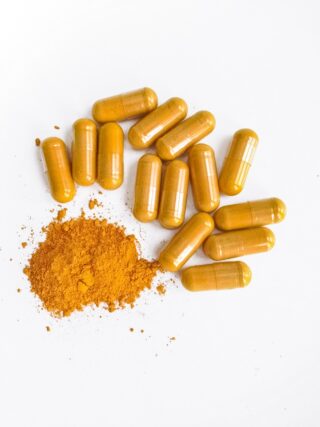Dealing with injury can be a real challenge, especially if you’re an active person who loves to exercise regularly. As a parent, taking care of yourself and recovering properly from injuries is incredibly important, not just for your own sake but also for your family’s. That’s why I’m sharing some of my top strategies and supplements for injury recovery that have helped me and many others get back in shape after various injuries.
Specific Incremental Retraining
One of the most effective ways to recover from an injury is to gradually reintroduce movement and exercise to the affected area. This process is called specific incremental retraining, and it involves focusing on specific movements that were previously painful or difficult and gradually increasing the intensity and duration over time. For example, if you’re recovering from a knee injury, you might start with simple knee stretches and then gradually progress to more challenging exercises like lunges and squats. This type of retraining can help you rebuild strength and flexibility while reducing the risk of re-injury.
Stretching
Stretching is another crucial element of injury recovery and prevention, especially if you have tight or stiff muscles that are contributing to your injury. By stretching regularly, you can improve your range of motion, reduce stiffness, and help your muscles recover more quickly. Some of the best stretches for injury recovery include hip flexor stretches, hamstring stretches, and calf stretches. Make sure to stretch gradually and gently, and don’t push yourself beyond your limits.
Check out this article all about the benefits of stretching!
Supplements
In addition to exercise and stretching, certain supplements can also be incredibly helpful for injury recovery. Creatine, for example, is a popular supplement that can help boost muscle growth and improve strength. Collagen is another supplement that’s been shown to help promote joint health, reduce pain, and aid in healing and recovery. Omega-3 fatty acids and vitamin C are also important supplements that can support the healing process and reduce inflammation. Finally, Glutamine is another supplement with promising research in injury recovery. Let’s now take a closer look at these supplements:
Creatine
Creatine supplementation has been extensively researched and shows promising results in aiding recovery from various types of injuries. The supplement is known for enhancing muscle force recovery after eccentrically-induced muscle damage, and it could be effective at reducing severity or enhancing recovery from mild traumatic brain injury. Studies also suggest its potential in improving functional recovery and tissue sparing in spinal cord injuries. Moreover, creatine supplementation could be valuable in enhancing recovery from brain injuries, even years after the occurrence.
Collagen
Collagen is a vital protein that’s widely distributed in the human body, and it plays a fundamental role in maintaining tissue structure and function. As a primary component of connective tissue, it’s crucial in upholding the integrity of various bodily structures, including skin, tendons, ligaments, and bones. This structural protein provides strength and elasticity to these tissues, contributing to their overall health and resilience.
Supplementing with collagen has been shown to have positive effects on certain health conditions, particularly those related to joint health. A study published in the Journal of Cosmetic Dermatology found that collagen supplementation improved osteoarthritis-related symptoms. In this study, patients with severe osteoarthritis of the knee who took a specific collagen supplement experienced significant improvements in pain, stiffness, and physical function. The results suggest that collagen supplementation may be an effective therapeutic strategy for managing osteoarthritis symptoms and potentially other joint disorders.
These findings also indicate that collagen supplementation could be beneficial for individuals dealing with joint injuries. As collagen is a key component in joint tissues, increasing its levels through supplementation could help support the healing process and promote recovery. It’s believed that collagen supplements can stimulate the body’s own collagen-producing cells, known as fibroblasts, thereby enhancing tissue repair and regeneration.
Check out this article all about collagen!
Omega-3
Omega-3 fatty acids, commonly found in fish oil, flaxseeds, and walnuts, are renowned for their health benefits, particularly their anti-inflammatory properties. These fatty acids, specifically EPA (Eicosapentaenoic acid) and DHA (Docosahexaenoic acid), play a crucial role in the body’s inflammatory response, which is an essential part of healing and recovery.
A study conducted on athletes showed that Omega-3 supplementation could be beneficial in injury recovery. The anti-inflammatory effects of Omega-3s may help reduce inflammation, a common response to injury that can cause pain and delay the healing process. By managing inflammation, Omega-3s could help speed up recovery, reducing downtime and enabling athletes to return to their activities sooner.
Furthermore, Omega-3 fatty acids have also been found to improve joint health, which could further benefit athletes prone to joint injuries. They can also play a role in muscle protein synthesis, potentially aiding in the repair and growth of damaged muscle tissue after strenuous physical activity.
Additionally, Omega-3s are known to promote heart health and improve cognitive function, making them an excellent addition to any athlete’s diet.Vitamin C, also known as ascorbic acid, is a potent antioxidant recognized for its multiple health benefits. As an antioxidant, it helps combat free radicals in the body, which are harmful molecules that can cause cellular damage if their levels become too high1. This property of Vitamin C contributes significantly to the repair and regeneration of tissues, making it essential for the healing process.
Vitamin C
Vitamin C, also known as ascorbic acid, is a potent antioxidant recognized for its multiple health benefits. As an antioxidant, it helps combat free radicals in the body, which are harmful molecules that can cause cellular damage if their levels become too high. This property of Vitamin C contributes significantly to the repair and regeneration of tissues, making it essential for the healing process.
Moreover, Vitamin C plays a pivotal role in the enzymatic production of certain neurotransmitters, such as norepinephrine. Neurotransmitters are chemical messengers that transmit signals across nerve endings, helping regulate a wide array of bodily functions, from mood to muscle movement. Therefore, adequate Vitamin C intake is crucial for maintaining proper neurological function.
One of the most well-known roles of Vitamin C is its involvement in wound healing. It assists in the formation of collagen, a key protein that gives structure to skin, blood vessels, tendons, ligaments, and bones. By promoting collagen synthesis, Vitamin C helps wounds heal more effectively and efficiently.
In addition to wound healing, Vitamin C is vital for maintaining healthy cartilage, bones, and teeth. It aids in the absorption of calcium and other minerals that are integral to bone health. Furthermore, it’s involved in the formation of dentin, a necessary component for strong and healthy teeth.
Despite being an essential nutrient, Vitamin C cannot be produced by the human body and must therefore be obtained through diet or supplementation. Common sources include citrus fruits, strawberries, bell peppers, spinach, and kale.
Glutamine
Glutamine, an amino acid, shows promising potential in aiding injury recovery based on various research studies. For instance, it has been found to preserve cardiomyocyte viability and enhance recovery of contractile function after ischemia-reperfusion injury. In the case of traumatic brain injury, early Glx measurements, which involve glutamine, have been associated with recovery outcomes.
Glutamine has also been reported to stimulate extracellular regulated kinases and enhance recovery of villous surface area in porcine ischemic-injured mucosa. Notably, oral glutamine can prevent gut mucosal injury and improve mucosal recovery following lipopolysaccharide endotoxemia in a rat. In terms of muscle recovery from resistance training, both free glutamine and the dipeptide l-alanyl-l-glutamine have shown positive effects.
Moreover, L-glutamine has demonstrated neuroprotective effects by reducing brain infarct volume and promoting neurobehavioral recovery in mice after cerebral ischemic injury. Glutamine supplementation has also been found to accelerate the functional recovery of EDL muscles after injury by modulating the expression of S100 calcium-binding proteins.
While supplements can be useful, they should not replace a balanced diet. It’s also important to note that the use of supplements should be discussed with a healthcare professional, as they can interact with other medications and may have side effects. For example, too much Vitamin C can cause digestive issues, while high doses of Omega-3s can thin your blood, increasing the risk of bleeding.
Rest and Recovery
While exercise, stretching, and supplements are all important components of injury recovery, it’s also crucial to give your body enough time to rest and recover. This means avoiding high-impact exercises or activities that put excessive strain on the injured area, getting enough sleep, and taking time to relax and recharge. Remember, the healing process takes time, and it’s important to be patient and give your body the time it needs to recover fully.
Positive Mindset
Embracing a positive mindset can be a game-changer in the process of injury recovery. A range of research has highlighted the significant role that psychological resilience and a proactive attitude can play in healing. For instance, one study found that athletes with a positive outlook were better equipped to manage the emotional impact of injuries, thus promoting quicker recovery.
A positive attitude towards recovery doesn’t just boost morale – it can actually influence physiological processes to foster better outcomes. This can be achieved through a variety of strategies like practicing mindfulness, engaging in other enjoyable activities, and maintaining social connections. Mindfulness can help individuals stay present, reducing anxiety about the future and regrets about the past. Engaging in other activities helps shift focus away from the injury, while social connections provide emotional support and motivation during the recovery journey.
Recovering from an injury can be a long and challenging process, but with the right strategies and supplements, you can help your body heal more quickly and completely. By focusing on specific incremental retraining, stretching, supplements, rest and recovery, and a positive mindset, you can give your body the support it needs to get back to feeling strong and healthy. Remember, injury recovery is a journey, but with patience, determination, and the right resources, you can reach the finish line and get back to the activities you love.
For more amazing articles on health, wellness and supplementation click here!
Human Kinetics Journals The Journal of Neurosurgery American Journal of Gastroenterology MDPI NEJM ASPEN Journals BioMed Central Journal of Strength and Conditioning Research Journal of Cosmetic Dermatology National Institutes of Health Mayo Clinic
ASPEN Journals ↩
Journal of Neurotrauma ↩
Surgery ↩
Surgery ↩
Sports Medicine – Open ↩
Neuroscience & Therapeutics ↩
Histochemistry and Cell Biology ↩








